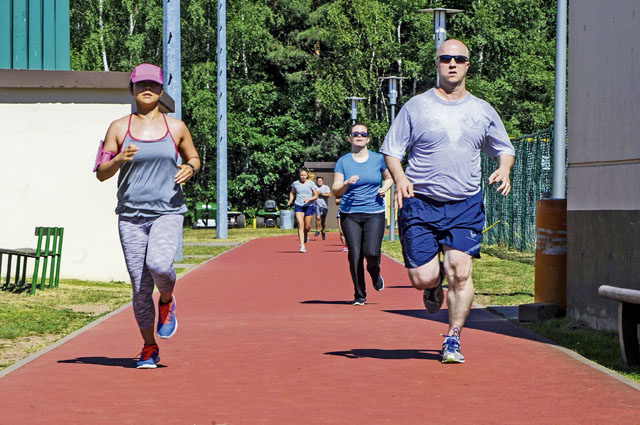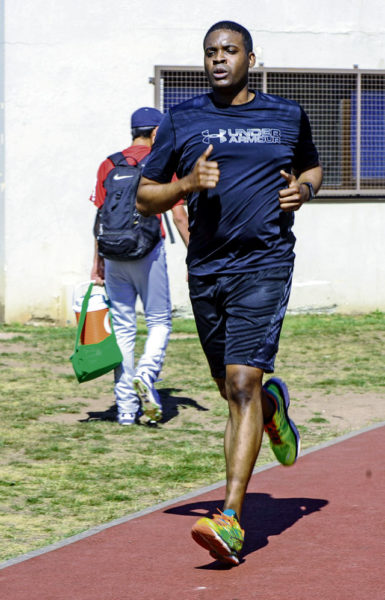
As their arms and legs feel heavier, chest and lungs start burning, and sweat runs into their eyes, thoughts of stopping springs to the front of many runners’ minds. However, for many people, including military members, they may have to keep going long after those thoughts appear.
Whether they are good at it or not, running can be a chore for many people. With help from others, that chore can become less tasking, maybe even enjoyable.
That’s where the Ramstein Running Improvement Program comes in. Led by Capt. Charity Bolling, 86th Aerospace Medicine Squadron Aerospace and Operational Physiology Flight commander, the program is designed to help people who want to better their running to live a healthier lifestyle, for personal satisfaction, or to improve their run times for the physical fitness assessment.
Though the eight-week program saw its Ramstein cohort begin on June 19, it has been proven to work.
“I was involved in a program like this at Sheppard, (Air Force Base, Texas),” Bolling said. “We had usually between 40 and 50 participants and about 10 coaches. It seemed to be something people enjoyed because it’s easier to run with a group, for most people. Plus, some people don’t really know what types of workouts to do (to improve their running).”
The program teaches people a proper warm-up, workouts to build up mileage and increase speed, and a proper cool down.
At the beginning of the program, running coaches have participants complete a mock physical fitness assessment. Based on their results, particularly their run, participants are placed into groups with other individuals with similar run times.
The groups allow for the training to be a little more challenging for each individual, while still giving them a team with whom they can meet and run. It is this flexibility in the program that opens it up to people of various levels of fitness and desires to get what they want out of the program.

“It doesn’t matter what fitness level you are, we have something to offer to help you,” said Staff Sgt. Daniel Austin, 86 AMS bioenvironmental technician and Running Improvement Program running coach.
According to Bolling, they see an average of a 1 1/2-minute improvement for the 1.5-mile run times, but the program isn’t designed specifically for that.
“We’ll get up to about three or 3.5 miles toward the end of the program,” Bolling said. “It will help to improve 1.5-mile run times, but if people wanted to do a 5K or something like that, the program would also prepare them for that.”
The workouts incorporate strength training that targets the same muscle groups needed for sit-ups and push-ups.
“I don’t want to leave that out,” Bolling said. “I think the majority of the people we get are people who either have trouble with or have failed the (physical training) test. I don’t want someone to focus too much on just running and then fail another component of the PT test, but also strength training is a very important component of overall fitness. Even runners have to do strength training to improve overall performance.”
Though many people may see big changes in their fitness levels, and PT test scores, Austin doesn’t believe that’s the biggest change that comes from participating in the program.
“(The biggest change I’ve seen is) the positive difference in the member’s confidence level from when they start the program to when they finish,” Austin said. “(My favorite part of being a coach) hands down is helping people and seeing the moment when the member comes back to tell us they beat their goal but knows they could do better.”
The program also allows great runners and even former participants to become coaches to continue to pass along similar support they received when improving their running. According to Bolling, the only real requirement for becoming a coach is a desire to help and support people in their goals to become better and healthier.
“The support system this program creates (is the biggest benefit),” Austin said. “You have the coaches, your running groups, and just new friends who are all working toward a similar goal and are there for you.”
For more information about the Running Improvement Program, contact Capt. Charity Bolling at 478-5660.


